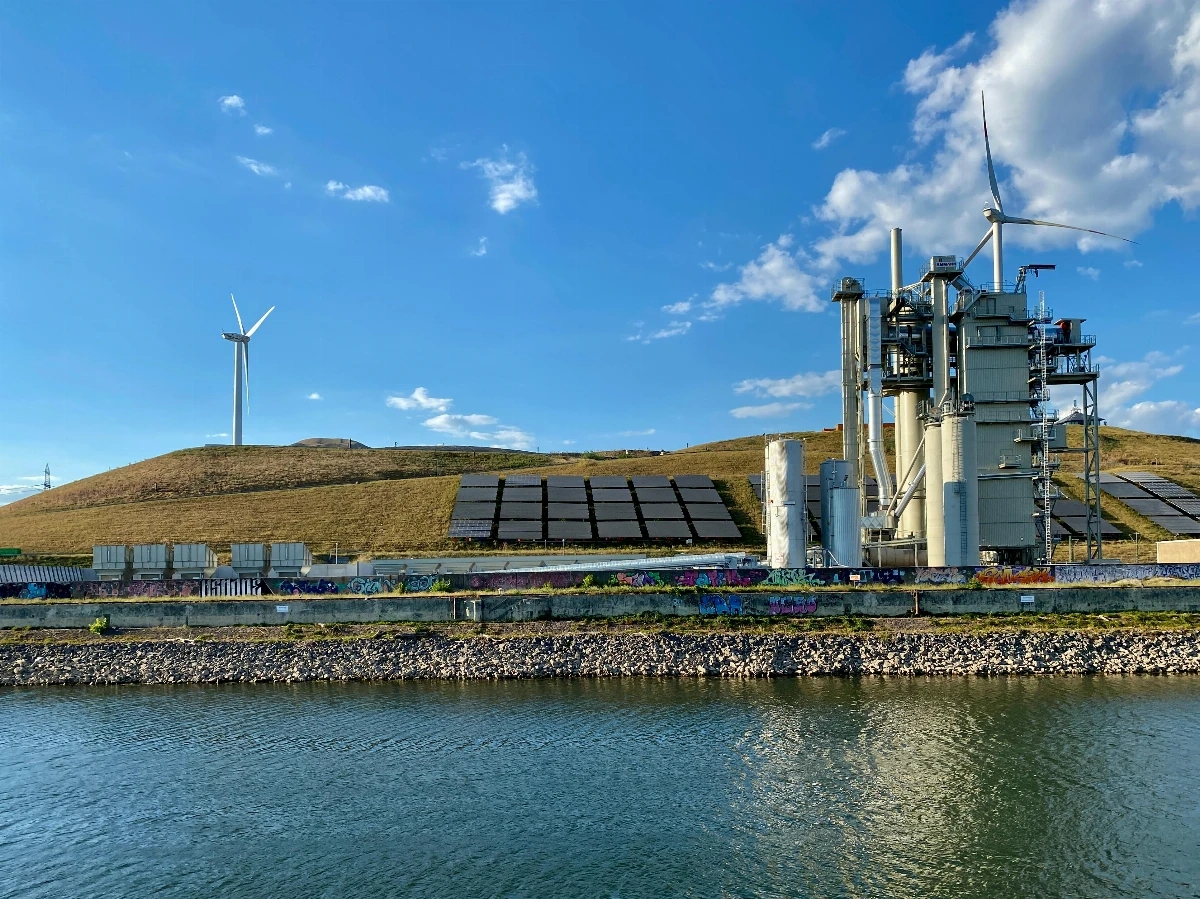Investing in Abia State? Learn about the top opportunities in sectors like technology, infrastructure, agriculture, and key factors to ensure a successful investment.

According to a UNDP report, Abia state now ranks third among the five states in South Western Nigeria in ease of doing business. Abia is known for its abundant natural resources, growing economy, and supportive business environment, making it an attractive destination for both local and international investors.
The state’s reputation as a commercial hub is well-deserved because of its entrepreneurial spirit and thriving industries. Economic places like Aba, with a skilled labour force and strong production capabilities, position themselves as significant contributors to Nigeria’s non-oil economy.
In this blog post, you will be presented with various industries and sectors you should invest in in Abia state, factors to consider, and major business hubs existing in the state to inspire new investors like you!
Summary
- Abia State offers numerous investment opportunities across infrastructure, technology, agriculture, and renewable energy sectors.
- The state's strategic location, skilled workforce, and supportive business environment have positioned it as a top destination for investors.
- Key areas such as Aba’s manufacturing and artisanal industries contribute significantly to Nigeria’s non-oil economy, which has the potential for global exportation.
- Investors can leverage government incentives, partnerships, and the state’s economic strengths to achieve financial growth and further develop Abia State.
Read also:
Top 5 Investment Opportunities in Abia State
Abia State presents numerous lucrative opportunities for investors, driven by its economic potential, strategic location, and growing infrastructure.
Here are the top five sectors with the highest investment potential:
1. Infrastructure Development

Abia State faces challenges in infrastructure, including roads, water supply, and urban development, but this also creates vast opportunities for private investment. With significant public-private partnership (PPP) potential in place, infrastructure development is essential for economic growth.
Lucrative Opportunities:
- Construction of highways, bridges, and efficient urban transit systems to improve connectivity.
- Public-Private Partnerships (PPPs) for water supply, waste management, and urban services.
- Smart city projects aimed at modernizing Aba and other urban centers for enhanced living and business environments.
2. Technology

Abia has a rapidly growing tech scene, with a youthful, tech-savvy population driving demand for digital solutions. The state's potential to become a technology hub in Nigeria is immense.
Lucrative Opportunities:
- Establishing IT parks, software development centers, and tech incubators.
- Investments in e-commerce platforms and mobile payment solutions tailored to local needs.
3. Small and Medium Enterprises (SMEs)

SMEs form the backbone of Abia's economy, particularly in Aba, which is renowned for its artisanal industries. Supporting SMEs will drive economic diversification and job creation.
Lucrative Opportunities:
- Establishing microfinance institutions to support local businesses.
- Partnerships to upgrade manufacturing equipment and enhance production efficiency.
- Export-driven SME initiatives, such as footwear and garment production.
4. Agriculture and Agro-Processing

Agriculture remains a vital sector for Abia, with significant room for growth in mechanization and value addition. The state is well-suited for large-scale farming and agro-processing, which will boost export potential and create jobs.
Lucrative Opportunities:
- Commercial farming of crops like cassava, palm oil, and rice.
- Establishment of food processing plants to boost exports.
- Livestock farming and aquaculture projects.
5. Renewable Energy

Image Source: https://www.pexels.com/photo/solar-light-panels-on-grass-near-windmills-13205474/
Renewable energy presents a significant investment opportunity in Abia State, driven by increasing energy demand and the need for sustainable solutions to address unstable power supply.
Lucrative Opportunities:
- Solar energy farms and mini-grids for rural electrification.
- Waste-to-energy projects using agricultural by-products.
- Wind and hydropower development.
Read Also: "Investment Opportunities and Growth Sectors in Zambia: A Comprehensive Guide for Investors"
Key Factors to Consider Before Investing in Abia State
To make informed decisions and ensure profitability, here are the most important factors to consider before investing in Abia State:
1. Infrastructure Availability
The state has made progress in infrastructure, but there are areas that require attention, such as transportation (road networks), electricity supply, and water systems. Aba, for instance, is a hub for commercial activities but requires infrastructural enhancements for optimal productivity. Investors should evaluate how infrastructure might impact operations and assess the government's plans for improvements in these areas.
2. Government Policies and Incentives
Abia State Government offers several incentives to attract investors, including friendly taxes, infrastructural development and security. The knowledge of these policies helps investors know what is at stake when investing in the state and ensure compliance with local regulations to avoid legal or financial setbacks by investors.
3. Access to Skilled Workforce
Abia State has a growing and skilled labour force, particularly in trades like garment making, shoe production, and other manufacturing industries. However, Investors considering investing in Communications, technologies or related sectors will consider training and capacity-building initiatives to enhance workforce productivity.
4. Natural Resources and Raw Materials
The state is known for its richness in natural resources such as oil, gas, palm produce, and timber. Investors in agribusiness, mining, and energy should be aware of the availability of these resources. However, they will need to partner with farmers or the government to access these resources before transporting them to their industries for production.
5. Ease of Doing Business
Abia State is making efforts to improve the ease of doing business through technical and financial support provided to the government. Investors should engage with local chambers of commerce and investment promotion agencies for better navigation.
6. Partnership Opportunities
Collaborating with local entrepreneurs, cooperatives, or government agencies can provide a smoother entry into the market. Partnerships often help investors overcome potential barriers such as bureaucratic delays and build goodwill in the local community.
7. Security and Political Stability
Abia State, like other South Western states, is relatively peaceful. However, some areas may experience sporadic security concerns. Investors are expected to stay informed about the local security and engage with community leaders and security agencies to establish trust and ensure the safety of their investments.
Related Article: "Investment Opportunities in Akwa Ibom: A Guide for Investors in 2024"
How Aba-Made Products Can Boost Nigeria’s Economy and Drive Exportation
Aba-made products, known for their craftsmanship and affordability, hold immense potential to transform Nigeria’s economy and strengthen export capacity. Here’s how:
1. Driving Manufacturing and Industrialization
Aba’s manufacturers are renowned for their skill and innovation in producing items such as footwear, clothing, and furniture. Scaling the production of Aba-made goods for international markets can significantly enhance Nigeria's manufacturing sector.
This growth fosters industrialization, enabling local manufacturers to increase capacity, create more jobs, and improve production processes, all while advancing the nation’s industrial agenda.
2. Creating Jobs and Alleviating Poverty
The manufacturing hubs in Aba already employ thousands, particularly in industries like textiles, leather, and furniture. Expanding export opportunities can stimulate job creation, reduce unemployment, and elevate living standards. This impact is particularly crucial in rural areas, where Aba serves as a lifeline for economic activity.
3. Increasing Export Revenue
Diversifying Nigeria’s export base by prioritizing Aba-made products offers a pathway to reduced dependence on crude oil. With strong global demand for high-quality, affordable goods like footwear and garments, Aba can significantly contribute to Nigeria’s foreign exchange earnings. Increased export revenues help stabilize the economy and reduce vulnerability to oil price shocks.
4. Empowering Small and Medium Enterprises (SMEs)
Aba is home to a vibrant SME ecosystem, making it a vital player in Nigeria’s economic landscape. By supporting the export of locally made products, SMEs gain access to funding, larger markets, and opportunities to scale their operations. This empowerment drives entrepreneurship, boosts innovation, and accelerates Nigeria's economic development.
5. Improving Infrastructure and Technology
Growing global demand for Aba-made goods necessitates improved infrastructure, such as better roads, ports, and energy supply, to support increased production and export activities.
Additionally, meeting international quality standards will encourage manufacturers to adopt modern technologies, raising the overall quality of Nigeria's products and enabling access to broader markets.
6. Enhancing Branding and Global Recognition
Aba's reputation for producing quality products positions it as a key player in industries like fashion and leather goods. Branding, certification, and marketing investments can elevate “Made in Aba” to a globally recognised label. This promotes Nigerian products internationally and fosters a sense of national pride and competitiveness in global markets.
7. Promoting Economic Diversification
Exporting Aba-made goods offers a strategic avenue for diversifying Nigeria’s economy beyond oil. With products already manufactured at competitive prices, Nigeria can expand its economic footprint and build resilience against economic fluctuations. This diversification is essential for long-term growth and sustainability.
Conclusion
Investment opportunities in Abia State range from the manufacturing sector in Aba to its underutilized renewable energy and mining sectors. The state is positioned as a haven for visionary investors like you.
Its strategic location, skilled workforce, and commitment to economic development make it a compelling destination for local and international stakeholders alike.
Take the first step today by exploring partnerships, leveraging government incentives, and connecting with local experts to turn these opportunities into successful ventures.
FAQs
1. What is Abia State GDP?
Abia State's GDP is estimated at approximately $8.74 billion, and it is driven by manufacturing, agriculture, and trade.
2. What is Abia State's present economy?
Abia’s economy is robust, with thriving industrial and SME sectors, supported by agriculture, oil production, and growing investments in technology and infrastructure.
3. List of Autonomous Communities in Abia State?
Abia State comprises over 700 autonomous communities, including notable ones like Umuahia, Aba, Ohafia, and Arochukwu.
4. What is the richest local government in Abia State, and what makes it the richest?
Aba North is the richest local government in Abia State due to its industrial hub status, home to numerous manufacturing and commercial enterprises.

